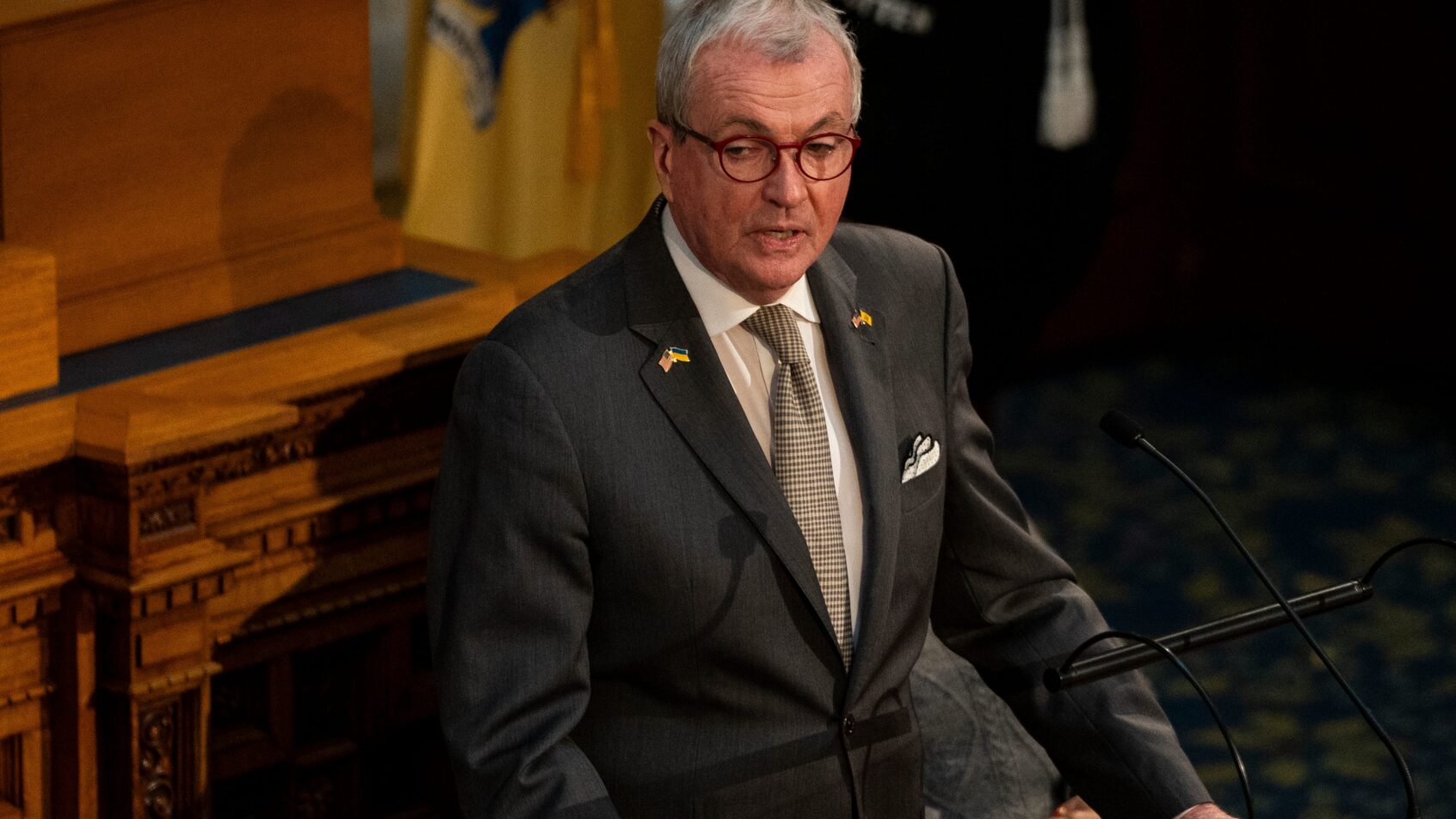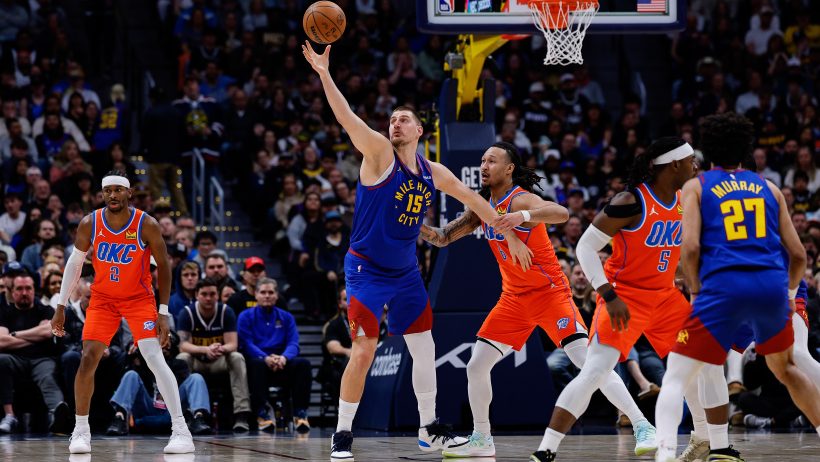New Jersey Lawmakers Still Pondering Sports Betting, iGaming Tax Increases
By Robert Linnehan in Sports Betting News
Published:

- Gov. Phil Murphy (D) introduced a budget in February that includes a sports betting and iGaming tax rate increase
- Gov. Murphy proposed increasing both rates to 25%
- An industry source in New Jersey tells Sports Betting Dime that leadership in either chamber does not support an increase to 25% for both
As New Jersey’s primary results are now official, state lawmakers will now focus on crafting the state’s budget prior to the end of June, with leadership in both chambers still pondering potential increases for the state’s sports betting and iGaming tax rates.
Gov. Phil Murphy (D) presented a record-setting $58.05 billion budget this past February, his last as New Jersey’s governor, which included increases to both the sports betting and iGaming tax rates to 25% of adjusted revenues for each.
However, an industry source in New Jersey tells Sports Betting Dime that through discussions with Senate and Assembly leadership, there seems to be little support for increases to 25%, but enough interest where increases in one or both markets can be expected.
Primary Results Influencing NJ Sports Betting, iGaming Tax Increases
New Jersey currently taxes iGaming and online sports betting at a rate of 15% and 13% of adjusted revenues, respectively. The Garden State consistently reports one of the stronger gaming markets in the country, and interest in increasing the gaming tax rates has certainly existed at the legislative level.
Murphy’s proposed increases are estimated to bring in an additional $402.4 million in revenue for FY 2026.
The results of Tuesday’s primary in the Garden State will help shape the state’s fiscal year 2026 budget. Democratic U.S. Rep. Mikie Sherrill defeated five other democrat candidates to grasp the party’s nomination, while republican Jack Ciattarelli, a former state assemblyman and three-time candidate for governor, seized the republican party’s nomination.
Both Senate and Assembly lawmakers will present their own budget proposals over the next several weeks, leading to a finalized budget to be sent to Murphy prior to the June 30 deadline.
The industry source told Sports Betting Dime that several possibilities now exist for the potential of a sports betting or iGaming tax rate increase. If Sherrill had been defeated in the primary, the chances of a republican as the next New Jersey governor would have likely crossed the 50% threshold, and no increases for either sports betting or iGaming would have likely been included in the next budget.
However, with Sherrill firmly winning the democratic nomination, the source noted that there are now two likely outcomes for a potential increase:
- An increase to 18% of adjusted revenues for both sports betting and iGaming tax rates
- No increase to the sports betting tax rate, but an increase to 20% for iGaming
Gov. Murphy has noted on several occasions he will follow the lead of both chambers when it comes to the potential of a sports betting or iGaming tax rate increase.
Three States Increased Gaming Rates So Far in 2025
Four states, including New Jersey, have publicly considered increases to their sports betting or iGaming rates in 2025. Louisiana and Maryland both approved increases to their sports betting rates – though not as big as originally proposed – while Illinois has instituted a new per-bet fee for each of its licensed operators.
Maryland Gov. Wes Moore (D) recently signed a bill into law to increase the state’s sports betting tax rate to 20%, up from 15%. Gov. Moore, Senate President Bill Ferguson (D-46), and House Speaker Adrienne A. Jones (D-10) announced the framework for the state’s proposed $67.3 billion 2026 budget in March. The budget included agreed-upon cuts of nearly $2.3 billion and included more than $1 billion in new revenues.
However, Moore’s version of the budget he introduced in January included an ever larger increase to Maryland’s sports betting tax rate. Moore originally proposed an increase to 32% for the state’s rate.
Lawmakers settled on a 20% compromise.
Louisiana lawmakers also approved a bill late Sunday to increase the Pelican State’s online sports betting tax rate. The Louisiana Senate approved Rep. Neil Riser’s (R-20) bill, HB 639, by a 35-3 vote. The legislation calls for an increase to Louisiana’s online sports betting tax rate from its original 15% rate to 21.5%.
Riser’s bill originally called for an increase to 31%, but the rate was decreased after negotiations with licensed operators.
Illinois lawmakers also included a last minute plan in the fiscal year budget to charge a $0.25 fee on the first 20,000,000 online sports bets taken in the state each year. The fee will increase to $0.50 per bet for every single bet taken after the initial 20,000,000 bets.
According to a report from the Chicago Tribune, the new fee is expected to bring in $36 million annually to the state, but will result in FanDuel and DraftKings – likely the only two operators to eclipse the 20,000,000 bet threshold – paying a tax rate equivalent of 57% to 60% when the fee is instituted.
Operators that do not cross the 20,000,000 bet threshold will likely see an equivalent 12.5% increase to the tax rate they are required to pay.
It is the second tax rate increase for sports betting operators in the state in the last year alone. Gov. Pritzker signed the Illinois FY 2025 budget into law on June 1, 2024, which included a new progressive tax rate for licensed state sportsbooks. The first-ever progressive tax rate for sports betting operators requires sportsbooks to pay a rate of 20% to 40% based on adjusted gross revenues.

Regulatory Writer and Editor
Robert Linnehan covers all regulatory developments in online gambling and sports betting. He specializes in U.S. sports betting news along with casino regulation news as one of the most trusted sources in the country.



